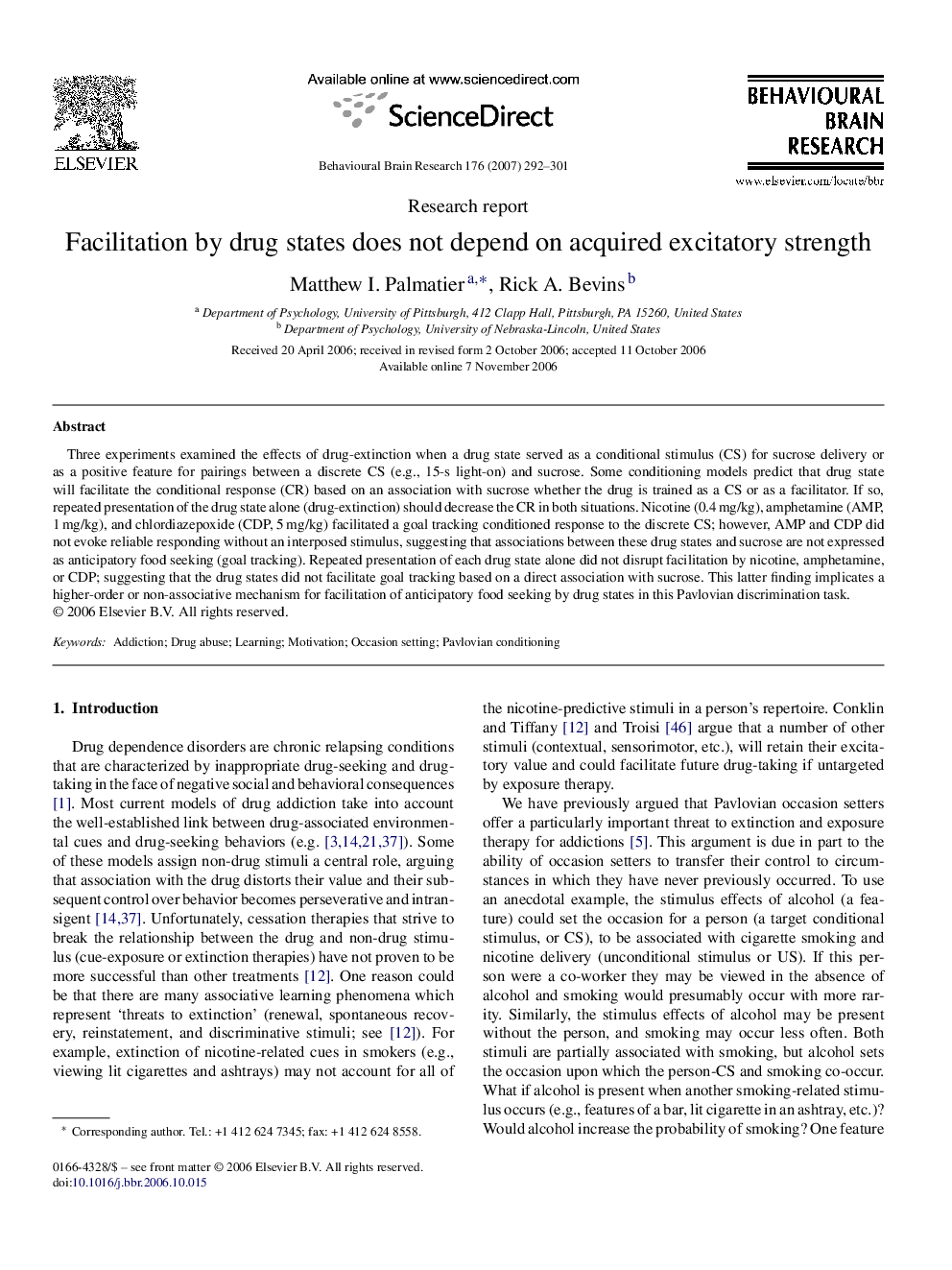| کد مقاله | کد نشریه | سال انتشار | مقاله انگلیسی | نسخه تمام متن |
|---|---|---|---|---|
| 4315751 | 1290093 | 2007 | 10 صفحه PDF | دانلود رایگان |

Three experiments examined the effects of drug-extinction when a drug state served as a conditional stimulus (CS) for sucrose delivery or as a positive feature for pairings between a discrete CS (e.g., 15-s light-on) and sucrose. Some conditioning models predict that drug state will facilitate the conditional response (CR) based on an association with sucrose whether the drug is trained as a CS or as a facilitator. If so, repeated presentation of the drug state alone (drug-extinction) should decrease the CR in both situations. Nicotine (0.4 mg/kg), amphetamine (AMP, 1 mg/kg), and chlordiazepoxide (CDP, 5 mg/kg) facilitated a goal tracking conditioned response to the discrete CS; however, AMP and CDP did not evoke reliable responding without an interposed stimulus, suggesting that associations between these drug states and sucrose are not expressed as anticipatory food seeking (goal tracking). Repeated presentation of each drug state alone did not disrupt facilitation by nicotine, amphetamine, or CDP; suggesting that the drug states did not facilitate goal tracking based on a direct association with sucrose. This latter finding implicates a higher-order or non-associative mechanism for facilitation of anticipatory food seeking by drug states in this Pavlovian discrimination task.
Journal: Behavioural Brain Research - Volume 176, Issue 2, 25 January 2007, Pages 292–301